|
Clients often ask if I can provide them with a receipt that they can submit to insurance. Yes, I can, but you will want a back-up plan. Doulas are not automatically covered by insurance although many people feel they should be. Choices in Childbirth (CiC) put out a big report on this topic earlier this year, Overdue! Insurance Coverage of Doula Care. Warning: it's complicated. In the report they say, “Private insurance plans should include services of a trained doula as a covered service, and state legislatures should pass legislation mandating private insurance coverage of doula services, as they have done for a broad range of services." Even in states where there are programs and the insurance companies are supposed to reimburse (the only states being Oregon and Minnesota), it is not a slam-dunk, “At this time, few doulas, if any, have actually received reimbursement in either Oregon or Minnesota.”
So some people try to get covered with some effort. For this, the doula needs to provide an itemized receipt. The theory is that there are insurance companies that cover support services that fall into a second tier of health options such as therapeutic massage, gym memberships, breast pumps, lactation consultants and doulas, and typically the companies require the insured to provide paperwork and receipts. As an example of how to submit, DONA offers this DONA 3rd party reimbursement manual, but keep in mind it needs updating as it still includes CPT code, which I will go into below: http://www.dona.org/PDF/3PRSampleLetter.pdf. As doulas, we can provide a detailed receipt including our National Provider Identification (NPI#) and a description of services. As per describing services - I have not heard of the insurance companies being impressed with doulas describing relaxation and pain-coping techniques or that doulas are preventive medicine and statistically reduce the need for expensive surgeries and epidural anesthesia. The companies seem to better respond to tangible services they are familiar with, such as childbirth education and breastfeeding support. Anecdotally, I have heard of a doulas being reimbursed when the provider signs a letter of medical necessity, including a medical code, indicating labor support increases the chances of the patient having an unmedicated birth with no pain management (I guess if it's doctor's orders then it is taken more seriously). What is this secret code you ask? Midwives and Doctors can offer CPT code 99499, since they are medical, but since doulas are not medical we cannot offer this same code. Per DONA, “As of this date, there is no national CPT (current procedural terminology) code for doulas.” So doulas cannot sign-off on this type of letter/receipt because doulas are not medical therefore we do not have a diagnosis code. Having a provider sign-off on our services is not realistic option for most of us since we are hired by the client and not by the provider, but there are offices in my home turf of northern NJ that have doulas on staff, such as Wombkeepers and Midwives of NJ. So what are the options? Some clients have been able to use their Health Savings Account (HSA) accounts and Flexible Spending Accounts (FSA), that can reimburse an individual or help one pay for eligible health care expenses not covered by one's health plan. Typically, the amount designated from your paycheck, that you put into your FSA, is taken out pre-tax. You will still need a receipt with NPI# and description of services for this purpose. In closing... The insurance piece is going to take some time. Feel free to get involved by raising awareness via the CiC report or by contacting the rep at your doula organization who handles insurance questions. Personally, I don't recommend clients invest too much time with insurance. As for women who cannot afford a doula - recommend saving, offer a payment plan, request money for doula-savings at their baby shower/registry, ask a doula to barter services. Also, there are always student doula training and attending births, as they work towards their certification. To find these doulas just look on doulamatch and see how much they charge – rates often correlate with experience. What is your experience with insurance reimbursement for doulas and what are creative ways you've heard of how people afford a doula? How do you respond when people ask if you provide insurance? I hope to read your response. _______________________________________ If you are interested to read the full report, visit Choices in Childbirth's Toolkit Overdue Medicaid and Private Insurance Coverage of Doula Care to Strengthen Maternal and Infant Health http://choicesinchildbirth.org/our-work/advocacy-policy/doulacoverage/.
1 Comment
Skylands doulas, a group that generates supports and advocacy for the role of doulas based in northwest New Jersey, periodically hosts doula meet-ups. This past year we had the pleasure of hosting 3 midwives as part of our meet-the-midwife gatherings. The 3 midwifes all came from different practices here in NJ. 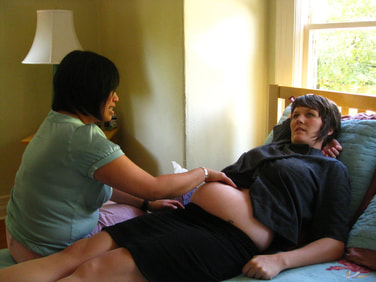 Let's quickly outline the different license options for midwives here in NJ as there are 3: CNM (prescriptive and non), CM, & CPM. According to American College of Nurse Midwives, "CNMs are licensed, independent health care providers with prescriptive authority in all 50 states, the District of Columbia, American Samoa, Guam, and Puerto Rico. CNMs are defined as primary care providers under federal law. "CMs are also licensed, independent health care providers who have completed the same midwifery education as CNMs. CMs are authorized to practice in Delaware, Missouri, New Jersey, New York, and Rhode Island. CMs have prescriptive authority in New York and Rhode Island. The first accredited CM education program began in 1996. The CM credential is not yet recognized in all states." Read more on the ACNM Website. A Certified Professional Midwife (CPM) "is a knowledgeable, skilled and professional independent midwifery practitioner who has met the standards for certification set by the North American Registry of Midwives (NARM) and is qualified to provide the Midwives Model of Care. The CPM is the only midwifery credential that requires knowledge about and experience in out-of-hospital settings." Read more at NARM.org According to NJ Homebirth Midwives "All New Jersey licensed midwives have undergone both clinical and academic training and have met rigorous standards set out by the NJ Board of Medical Examiners. For midwives certified as Certified Midwives or Certified Nurse Midwives, their training has been university based and usually includes a graduate degree. For midwives certified as Certified Professional Midwives, their training is community based, which means they’ve done extensive study under experienced midwives and have graduated from a MEAC-accredited academic program as well. CPMs are the only type of midwife whose training is specifically focused on out-of-hospital birth." To learn more about the regulation of midwifery practice in NJ pls visit NJ Consumer Affairs Midwifery Liason Page. Ok so, let's begin... 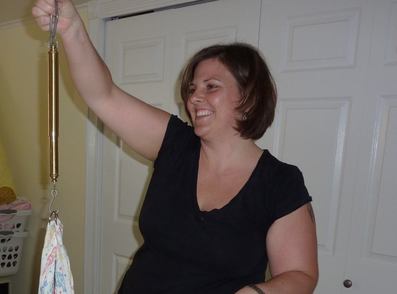 Midwife Kasey DiVine Midwife Kasey DiVine The first midwife who visited us was Kasey DiVine, RN, CPM who does homebirths with Babycatcher Midwifery & Motherlore Midwifery. Kasey shared about the experience, homebirth midwives sometimes go thru, of transferring from home to hospital and what to expect regarding: transport, continual support from birth team, choice of hospital based on location of medical back-up, reception of hospital staff, and more.... In the story she shared, all was well, but it was clear more communication and collaboration could be fostered between the homebirth communities and local doctors and hospitals. Kasey feels that having a good collaborative relationship with an OB practice (like the relationship they have with One to One Female Care) "makes transfer safer and less stressful for the mom. The goal that we homebirth midwives are working on is expanding those relationships to other docs and hospitals." What ideas do you have how to educate and inform regarding home to hospital transfer? Thanks to Kasey as we were very grateful she was able to come share about her experience with the Skylands Doulas. What programs do you know of that help foster the relationship between #homebirth communities and local doctors and hospitals? The second midwife, who we were honored to have visit, was Donna Tabas CNM, MS of North Jersey Midwifery Care, who currently attends births at Hackensack UMC at Pascack Valley. Donna has a solo practice and works as a "dedicated” midwife, meaning that she is the midwife you will have for all your prenatal care, the birth, and postpartum period. Donna shared about her journey to becoming a midwife as well as how we must carefully choose the words we use when speaking of birth - it's all on her blog, read more about it on Donna's blog. Donna also shared some of the exercises she does with clients including a meditation on cesarean surgery. The cesarean meditation released tension and emotions in the room for all the women present - both on a personal level as well as professional as it released tension we hold from clients and the stories we become vessel to. Thank you Donna for helping us find our way through this space, which is often traumatic, and helping us find new words and helping us reframe. What is one of your favorite activities/exercises you do with #doula clients to help release fear and tension? The third midwife, we were lucky to have visit, recently became credentialed at two NJ hospitals after working as a Homebirth Midwife for 24 yrs. Linda Perry CNM, of Lifelong Midwifery writes that she is, "So excited.....bringing my practice very soon to Mountainside Hospital and Hoboken University Medical Center. Have you heard bad things about Hoboken? Times a changing over there. They are bringing back many of the St. Vincent's crew across the river, renovating both the rooms and the outlook." Linda also shared with us about Hoboken's new Pampered Pregnancy Program, "A family-centered childbirth and parent education program emphasizes mother and baby wellness, information for all family members, and family autonomy." Through this program, all of Linda's clients will have their own Pregnancy Coach included in their care. Follow Linda at https://www.facebook.com/YourMidwife/ Linda is excited to be working closer to home where she is short drive to be with her mamas. She is also looking forward to collaborating with the hospitals to further enhance their motherbaby care. If you are a midwife or a birthworker and would like to come speak to Skylands Doulas, please contact Birth Doula & NJ Birth Photographer Rachel Connolly Kwock at [email protected] or 917 676 7177. Thank you! Thanks to all the midwives of the world!
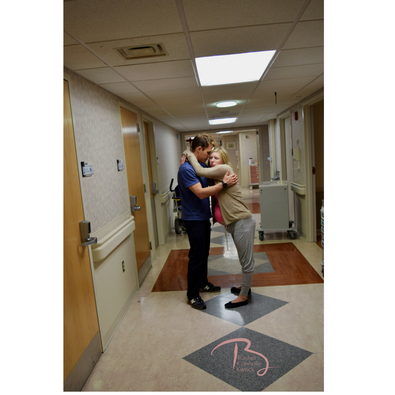 Professional Photographers dedicate years of learning and experience to master their craft, invest thousands of dollars in camera bodies, lenses, and equipment and editing programs, create a legal photography business entity recognized by the state from which to conduct business.... My offerings are a little different.... I am birth doula certified by Doulas of North America (DONA), a (former) professional filmmaker, and hobby photographer currently merging my love for all the roles here in Northern New Jersey. So how does it work - how can I be your birth doula and photographer at the same time and what exactly is my level of expertise? Well, to answer the first part of the question... If I am hired solely as your Birth Photographer then yes, 99% of the time I will capture everything that you would want captured. If I am hired in a dual role as your Birth Photographer/Doula, I can do both jobs at about 95%, as there will definitely be a few moments where I am not able to capture a photo or not provide the support needed depending on what you have expressed you want. At our prenatal visit, we can discuss what is more important to you, either the birth photography or the doula support, with the caveat being that birth is fluid, and oftentimes intense, so your needs may change in the moment and as a doula I am trained to respond to the woman's physiological needs. Okay, so what is my level of expertise? I have been a lifelong hobby photographer, however once I committed to offering birth photography services, I invested in a new digital camera/lens/flash. editing system, etc... took a class to polish my skills, paid for pro membership and enlisted the help of a designer friend to create a watermark. Photographers are always learning, however I feel confident with my skills and equipment at this time. Please see my gallery page to see the progression of my work. I will continue to build my portfolio over the next year. So yes, I believe a doula and a birth photographer can fulfill both roles simultaneously, but with limitations. I also feel a client can hire a professional birth doula photographer in just one role but feel secure knowing they have hired someone with doula expertise as their photographer or someone with photography skills (if enlisted) as their doula. I will always have the heart of a doula and the eye of the photographer whatever role I am in. Best wishes for you birth and props to all the birth doula photographers in the world! |
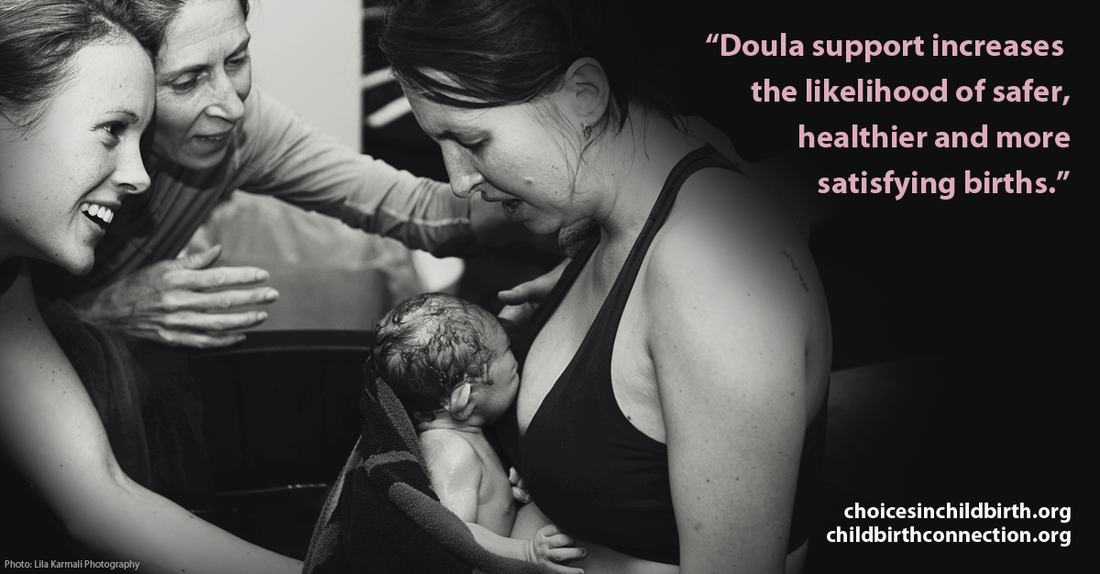
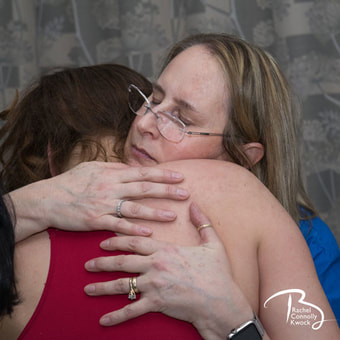
 RSS Feed
RSS Feed